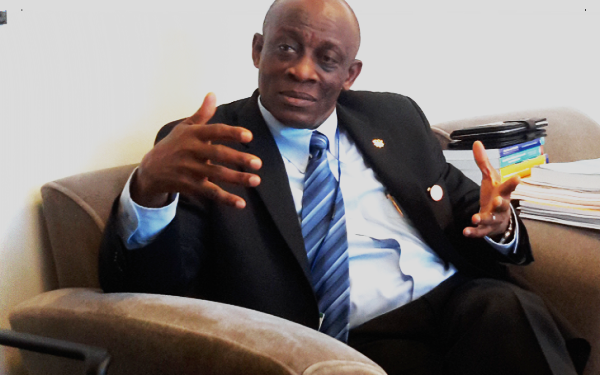IMF Negotiations and Economic Outlook: Insights from Ex-Finance Minister Seth Terkper
“If we had excess capacity, where did it go? Today we are in a shortage, yet we were a country with excess capacity,” he questioned, pointing to the mismanagement and financial oversight that have exacerbated the country’s economic woes.
At the sidelines of the IMF and World Bank Spring Meetings in Washington D.C., former Ghanaian Finance Minister Hon. Seth Terkper provided critical insights into the ongoing economic challenges facing Ghana, including stalled negotiations with international bondholders.
Terkper expressed concerns about the impact of renegotiated terms on Ghana’s economic recovery efforts.
“The terms and conditions that had been agreed upon look like they have been varied, falling short of the IMF’s debt sustainability analysis, which is a very important milestone for getting out of the situation Ghana is in now,” Terkper disclosed.
This revelation underscores potential roadblocks in securing a crucial $360 million tranche from the IMF, earmarked to support the country’s financial stability.
Drawing on experiences from other nations, Terkper noted, “You can pick a cue from Zambia. Remember that, in the case of Ghana, we had to get a waiver for the official creditors whose MoU is also outstanding, and even though we got a waiver, one of the waivers was China and France as Chairpersons giving assurance for the release of the funds.”
The former minister also highlighted the broader economic outlook for Sub-Saharan Africa, indicating a rise in growth projections despite global economic pressures.
“Growth in SSA is expected to rise to 3.8% in 2024 from 3.4% in 2023 and to 4% in 2025. This is progressive and good, reflecting a gradual recovery from the COVID-19 crisis and other crises on the continent,” he said.
Addressing the IMF’s recent advisory against premature monetary easing by central banks, Terkper connected the global financial body’s recommendations to local economic strategies.
“The report is not in favour of central banks increasing financing in support of governments,” he explained, adding that, “in our context, the issue we have had is the extreme monetisation of the deficit, which is an example of easing to a significant extent.”
Terkper also criticised the management of Ghana’s energy sector, particularly the handling of excess generation capacity, which has contributed to the current ‘dumsor’ (power outage) debt crisis.
“If we had excess capacity, where did it go? Today we are in a shortage, yet we were a country with excess capacity,” he questioned, pointing to the mismanagement and financial oversight that have exacerbated the country’s economic woes.
As Ghana continues to navigate these multifaceted economic and financial tasks, the insights from a former finance minister provide a sobering reminder of the intricacies involved in stabilising an economy heavily reliant on both local and international financing that is also very sensitive to policy shifts both locally and globally.


